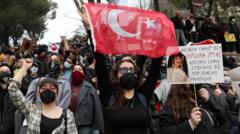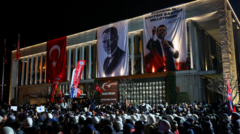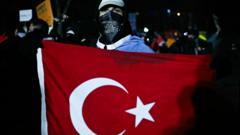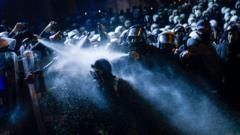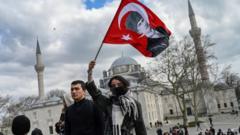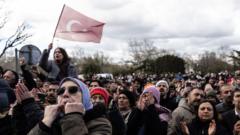As Syria navigates its post-civil war reality, many citizens now take pride in being on the lists of individuals targeted by the former Assad regime. This reversal highlights a significant shift in societal values and perceptions regarding dissent and oppression.
The Shift in Perception: 'Wanted' Lists Become A Source of Pride in Post-War Syria

The Shift in Perception: 'Wanted' Lists Become A Source of Pride in Post-War Syria
In the aftermath of Syria's civil war, being labeled "wanted" by the former Assad regime has transformed from a point of fear to a mark of honor among citizens.
In a striking reversal of sentiments, many Syrians now view being on the "wanted" lists of the ousted Assad regime as a badge of honor rather than a source of fear. This transformation is particularly poignant as individuals, like journalist Kazem Togan, return to Syria after years of exile. During his visit, Togan was excited to learn from a passport control agent that he was wanted by a particular intelligence branch of the regime, reflecting a broader societal change toward the legacy of the Assad dictatorship.
For decades, the threat of being "wanted" meant constant terror and potential imprisonment under the authoritarian rule of Bashar al-Assad and his father. Citizens lived in fear, aware that those on these lists faced the terrifying prospect of abduction or torture. However, as the dust settles on the civil war that has ravaged the nation, an intriguing cultural shift is taking place. Citizens openly inquire about their "status" on these lists, expressing pride rather than shame.
This newfound bravado resonates throughout conversations and social media, where individuals share their experiences of being included on the lists, turning what was once an emblem of oppression into a testament to their defiance against an oppressive regime. The legacy of resistance against a government that wielded torture and fear as tools of power is now celebrated as a moral and political triumph.
The change in perception among the Syrian populace illustrates a significant societal evolution. What was once a cause for anxiety and dread has morphed into a symbol of resilience and defiance, denoting not just survival but a willingness to stand against tyranny. This development marks an essential chapter in Syria’s journey toward recovery and potential democratization, as citizens reclaim narratives around authoritarianism and human rights, paving the way for future dialogues about justice and accountability in the rebuilding of their nation.


